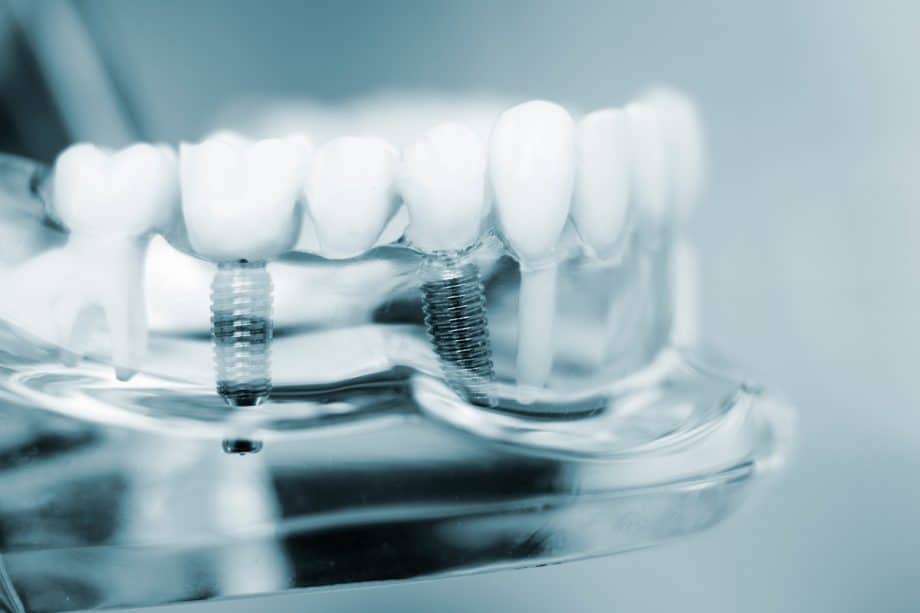Dental implants are artificial teeth inserted into the jaw to replace missing teeth. Unlike dentures, dental implants are permanent and can last a lifetime when cared for properly.
If you have one or more missing teeth, you may be a candidate for dental implants. Dental implants will help restore your smile and make eating much easier because they look and feel like natural teeth. Dental implants also maintain the structure of your face and help keep your natural teeth from shifting.
How Do Dental Implants Work?
The dental implant is a tiny post placed into the jawbone where the tooth is missing. The bone bonds with the titanium, creating a solid foundation for artificial teeth. A support post is placed on the implant, and a new replacement tooth is placed on the abutment. In some cases, a temporary crown will be placed on your implant immediately following surgery until your permanent crown can be constructed.
What are Dental Implants Made of?
Dental implants are made of titanium, a material biochemically compatible with bone tissue and bone formation. Titanium dental implants are strong enough to withstand the pressure of chewing, biting, and grinding.
The artificial teeth that attach to dental implants are usually made of porcelain—a hard and durable material. In addition to its durability, the main advantage of porcelain is that it can be accurately colored to match the shade of your natural teeth. Other materials, such as acrylic, can also be used
What Are the Benefits of Dental Implants Over Other Restorations?
Because they function like natural teeth, dental implants are a popular method for replacing missing teeth. While fixed bridges and removable dentures can also restore the appearance and function of your smile, dental implants provide a host of additional benefits.
- Dental implants don’t require altering the adjacent teeth, as is necessary with bridges.
- Unlike dentures, there’s no need for special cleaning techniques or adhesives—you care for dental implants the same way you do your natural teeth.
- Dental implants won’t shift in your mouth as dentures can.
- Dental implants last longer than other restorations—potentially a lifetime with proper care and maintenance.
Who is a Good Candidate for Dental Implants?
If you’re missing one or more teeth, dental implants can help restore your oral health as well as your smile. They can allow you to eat, chew, speak, and smile with confidence again.
To be considered for dental implants, you’ll first need to consult with a dentist, who’ll consider factors such as:
Your oral health. If you have oral health problems such as gum disease, they must be treated before undergoing implant surgery. You must be willing to commit to good oral hygiene practices and regular dental visits.
Your jawbone density. You need enough bone in your jaw to support the implant. If not, bone grafting may be required.
Your overall health. If you have certain medical conditions such as uncontrolled diabetes or cancer, or if you smoke or drink alcohol excessively, this may affect the success of the implants.
Your dentist can evaluate your suitability for dental implants during your consultation.
Mark S. Roisman, DMD, Offers Dental Implants
If you’ve suffered tooth loss, dental implants can improve your quality of life. With dental implants, patients experience a renewed sense of confidence and pride in their appearance.
If you want to know if dental implants are right for you, contact our office to schedule a consultation with Dr. Roisman.

